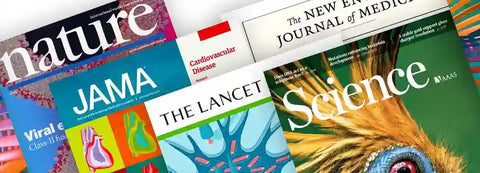A Few Troublesome Words and How To Use Them Effectively
English is not an easy language to master. Speaking it can certainly be challenging when it is not your native language, and writing it can be akin to a nightmare, even for native speakers, especially when that writing involves creating accomplished scholarly prose that discusses complex ideas in engaging ways. Academic and scientific writing must achieve the highest standards of formal English and avoid all grammatical and syntactical errors in order to communicate complicated data and sophisticated ideas successfully. Even when the basics are understood, however, and most sentences can be constructed without mistakes, there are certain troublesome words in English that are especially tricky to use correctly, and such words can undermine the best efforts of even the most conscientious writers. ‘Both,’ ‘each,’ ‘either,’ ‘neither,’ ‘nor’ and ‘only’ are among these words, so a few tips on their use may prove helpful.
‘Both’ represents a plural concept and always refers to two things, not one or three or more. It therefore takes a plural verb, as it does in the following two examples: ‘both a table and a figure were included in the article’ and ‘both of them are useful for understanding the author’s meaning.’
‘Each’ is used to single out one of two or more things, so unlike ‘both,’ it is a singular concept and takes a singular verb. ‘Each of the three figures shows something different’ is therefore correct, whereas ‘each of them are colourful’ is incorrect and should read ‘each of them is colourful.’
Although ‘either’ and ‘neither’ are generally used when talking about two things, they are singular concepts as well and should therefore appear with singular verbs. This means that ‘either a table or a figure was included in the blog post’ and ‘neither one is particularly helpful’ are both correct. A ‘neither . . . nor’ construction also takes a singular verb, so ‘neither the table nor the figure was helpful’ is correct, and remember that ‘or’ should not be used instead of ‘nor’ in a ‘neither . . . nor’ construction.
‘Neither,’ ‘either’ and ‘both’ must be carefully positioned in a sentence to achieve balance and clarity of meaning while avoiding repetition, so correct phrasing would be ‘the details affect neither him nor her.’ Were you to use ‘the details neither affect him nor her,’ the correct wording would actually be ‘the details neither affect him nor affect her,’ which is unnecessarily wordy as well as awkward. If ‘both’ were used in a similar situation, the correct wording would be ‘the details affect both him and her,’ not ‘the details both affect him and her.’ Again the correct version of the second would require the repeated use of ‘affect,’ so that construction would only be the right choice were you writing something a little different, such as ‘the details both affect him and terrify her.’
‘Only’ can be placed where it sounds best in a sentence unless there is a possibility of ambiguity or confusion, in which case it should be carefully positioned to clarify the meaning. ‘Laundry only washed on Fridays,’ for instance, could mean ‘only laundry is washed on Fridays’ or ‘laundry is washed on Fridays only’ or perhaps even something like ‘laundry is washed, but not dried, on Fridays.” It is therefore wise to consider all the placement and semantic options as you are writing and choose the one that most effectively expresses your intentions.
Why Our Editing and Proofreading Services?
At Proof-Reading-Service.com we offer the highest quality journal article editing, dissertation proofreading and online proofreading services via our large and extremely dedicated team of academic and scientific professionals. All of our proofreaders are native speakers of English who have earned their own postgraduate degrees, and their areas of specialisation cover such a wide range of disciplines that we are able to help our international clientele with research editing to improve and perfect all kinds of academic manuscripts for successful publication. Many of the carefully trained members of our manuscript editing and proofreading team work predominantly on articles intended for publication in scholarly journals, applying painstaking journal editing standards to ensure that the references and formatting used in each paper are in conformity with the journal’s instructions for authors and to correct any grammar, spelling, punctuation or simple typing errors. In this way, we enable our clients to report their research in the clear and accurate ways required to impress acquisitions proofreaders and achieve publication.
Our scientific proofreading services for the authors of a wide variety of scientific journal papers are especially popular, but we also offer manuscript proofreading services and have the experience and expertise to proofread and edit manuscripts in all scholarly disciplines, as well as beyond them. We have team members who specialise in medical proofreading services, and some of our experts dedicate their time exclusively to dissertation proofreading and manuscript proofreading, offering academics the opportunity to improve their use of formatting and language through the most exacting PhD thesis editing and journal article proofreading practices. Whether you are preparing a conference paper for presentation, polishing a progress report to share with colleagues, or facing the daunting task of editing and perfecting any kind of scholarly document for publication, a qualified member of our professional team can provide invaluable assistance and give you greater confidence in your written work.
If you are in the process of preparing an article for an academic or scientific journal, or planning one for the near future, you may well be interested in a new book, Guide to Journal Publication, which is available on our Tips and Advice on Publishing Research in Journals website.








